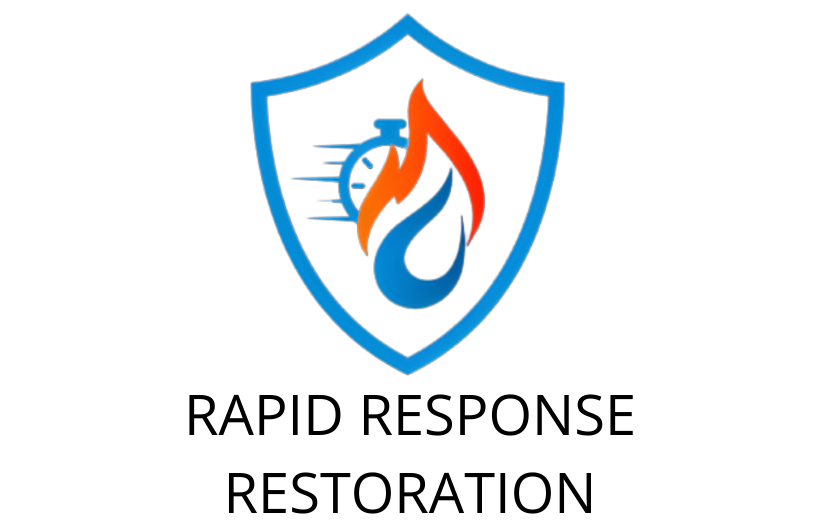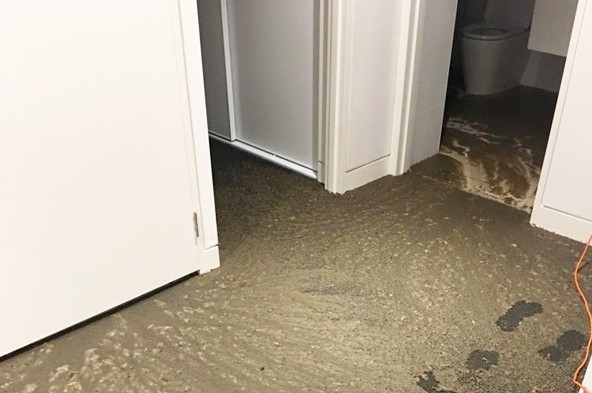Real Dangers of Sewage Water Damage & How to Clean It Safely
Sewage backups and overflows are more than just messy—they’re serious health hazards. Raw sewage contains harmful bacteria, viruses, and toxic chemicals that can cause severe illness and property damage if not handled correctly. Whether from a toilet overflow, sewer backup, or flooding, sewage water damage requires immediate professional cleanup to prevent contamination and structural issues.
In this guide, we’ll cover:
The real dangers of sewage exposure
Why DIY cleaning is risky
Professional sewage water damage restoration steps
How to choose the right sewage cleanup company
If you’re dealing with a sewage emergency, Rapid Response Restoration offers 24/7 sewage cleanup services to remove contaminants and restore your property safely.
Why Sewage Water Is So Dangerous
Sewage contains pathogens, chemicals, and decaying waste, including:
coli & Salmonella – Cause severe gastrointestinal illness
Hepatitis A – Leads to liver infections
Parasites like Giardia – Result in chronic digestive issues
Toxic gases (methane, hydrogen sulfide) – Can cause respiratory problems or even death in enclosed spaces
Even after water recedes, sewage leaves behind bacteria, mold, and foul odors that require professional-grade sanitation.
Immediate Steps After Sewage Exposure
If you experience a sewer backup or toilet overflow, follow these safety measures:
Evacuate & Protect Yourself
Keep children, pets, and vulnerable individuals at a safe distance.
Wear gloves, rubber boots, goggles, and an N95 mask if you must enter.
Turn Off Electricity (If Safe)
Avoid electrocution risks—do not enter standing water near electrical sources.
Stop the Source (If Possible)
Shut off the water supply to prevent further overflow.
Call a Professional Sewage Removal Service
Rapid Response Restoration provides emergency sewage cleanup 24/7 to handle hazardous waste safely.
Never attempt to clean raw sewage yourself! Improper handling spreads contamination.
The Professional Sewage Water Damage Restoration Process
Certified sewage cleanup experts follow strict biohazard protocols to ensure safety:
Inspection & Contamination Assessment
Identify the sewage source (toilet, sewer line, stormwater backup).
Test for hazardous bacteria and mold growth.
Water Extraction & Sewage Removal
Industrial pumps remove standing water.
Contaminated materials (carpets, drywall, insulation) are safely disposed of.
Disinfection & Sanitization
Hospital-grade antimicrobial treatments kill bacteria and viruses.
Air scrubbers filter out airborne pathogens.
Ozone or hydroxyl machines neutralize lingering odors.
Drying & Dehumidification
High-powered fans and dehumidifiers prevent mold growth.
Repairs & Restoration
Replace damaged flooring, drywall, and structural elements.
Ensure the property is safe for re-entry.
Rapid Response Restoration follows IICRC standards for sewage damage repair, ensuring your home or business is fully restored.
When DIY Sewage Cleanup Is Too Risky
While small spills (like a toilet overflow) can sometimes be managed with bleach solutions, large-scale sewage backups require professionals because:
Improper cleaning spreads bacteria to unaffected areas.
Hidden moisture leads to mold growth inside walls.
Sewage gases can be deadly in enclosed spaces.
Insurance may require professional documentation for claims.
For basement sewage cleanup, commercial sewage spills, or sewer line failures, always call biohazard sewage cleanup experts.
Choosing the Right Sewage Cleanup Company
Not all restoration companies handle raw sewage cleanup. Look for:
24/7 Emergency Response – Sewage damage worsens quickly.
Biohazard Certification – Proper training for hazardous waste.
Industrial-Grade Equipment – Truck-mounted pumps, HEPA air scrubbers.
Insurance Coordination – Helps document damage for claims.
Rapid Response Restoration meets all these criteria, offering affordable sewage cleanup with full safety compliance.
Preventing Future Sewage Backups
Avoid flushing wipes, grease, or feminine products.
Install a backwater valve to prevent sewer line backups.
Regularly inspect plumbing for leaks or blockages.
Grade landscaping away from foundations to reduce flooding risks.
Conclusion
Sewage water damage is a health emergency, not just a cleaning task. While small overflows can sometimes be managed, sewer backups and large spills require professional sewage water damage restoration to ensure safety. Need emergency sewage cleanup? Rapid Response Restoration provides fast, certified sewage removal and sanitation—call us 24/7 for immediate help!



Leave A Comment